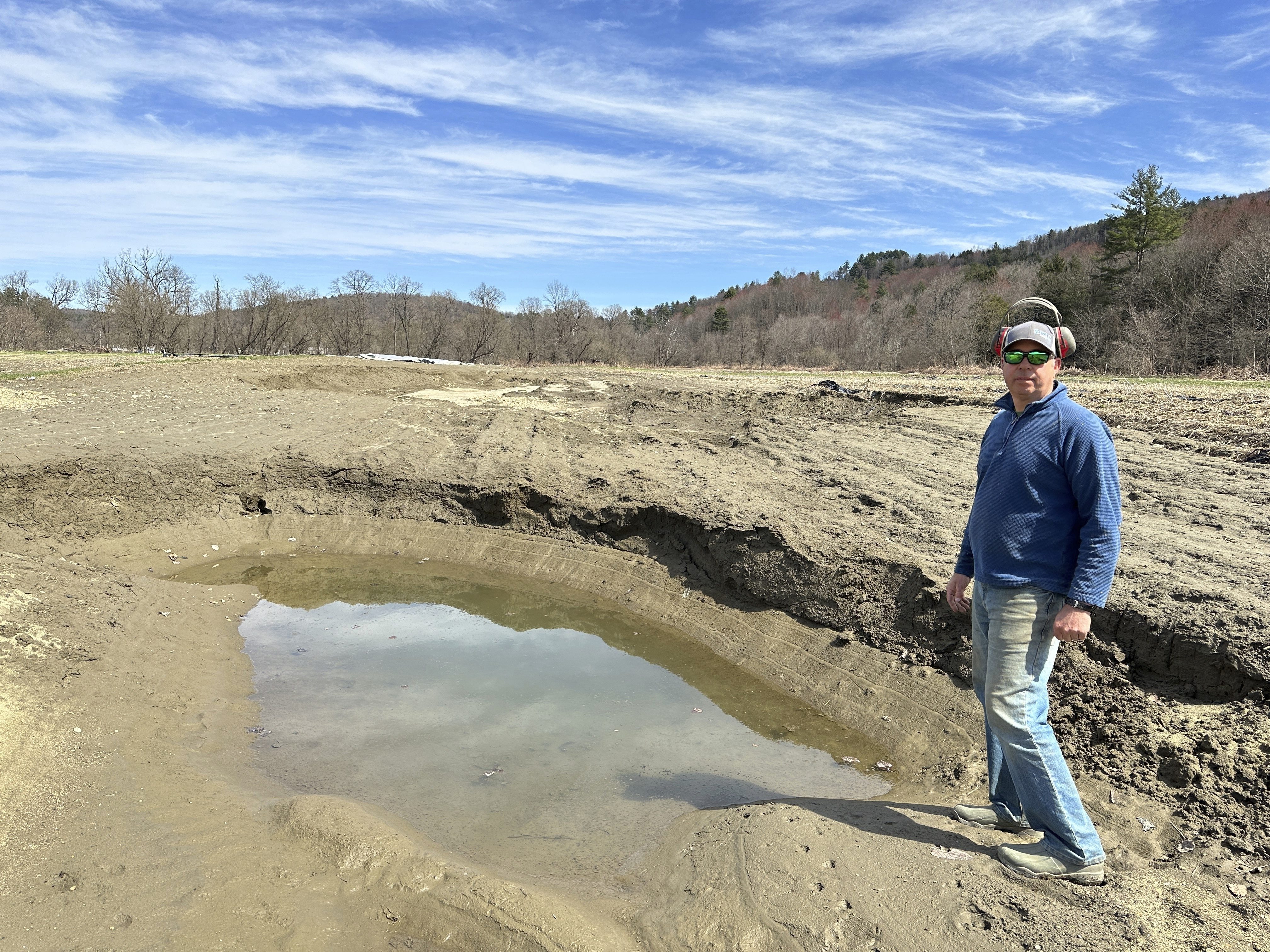Vermont's 19 producers of hard spirits want Congress to reduce federal excise taxes they say are hindering their growth. A bottle of hard alcohol has long been one of the nation's most heavily taxed consumer goods, Rep. Peter Welch, D-Vermont, acknowledged.
"It's huge for us," said Sivan Cotel, the co-owner of Stonecutter Spirits in Middlebury, a new company that ages gin in barrels. "Every dollar that you're putting into a punitive tax like a federal excise tax is keeping you from investing in your own business; it's keeping you from hiring people."
The Distilled Spirits Council of Vermont said its members pay approximately $2.40 in federal excise taxes on a typical 750 ml bottle of hard alcohol. Multiplied across all the bottles they sell, the council's Jeremy Elliott said the excise charges, along with other fees and taxes, have a big impact.
Elliott, who is co-owner of Smuggler's Notch Distillery in Jeffersonville and Waterbury, said the growth of hard alcohol in Vermont has been significant in recent years. "We're adding almost a distillery or two per year to Vermont," he said.
Elliott said five years ago, sales to the state-run liquor stores in Vermont totaled about $500,000, but blossomed to about $3,000,000 in 2014. They are on track to grow to $4,000,000 in 2015, he said.
"We're just growing at a rapid rate," Elliott added, noting that state-run liquor stores are just one market the distilleries reach, in addition to bars and restaurants, and direct-to-consumer sales through tasting rooms.
Elliott said he wants to make the state's liquor as famous as its beer. Craft brewing fans from around the country already hold the state in high regard for its award-winning beers like Heady Topper.
Elliott said the taxes and fees present a big roadblock to success for hard liquor following in beer's successful footsteps.
"Back in the early 90s, the breweries did a similar movement," Elliott recalled. "They had a cap on how much you could actually make, and they had a tax break. That's what really accelerated the whole craft brewing movement over the past two decades."
A proposal introduced last month in Congress would change the federal excise tax rates producers of distilled spirits pay. Rep. Todd Young, R-Indiana, and Rep. John Yarmuth, D-Kentucky, introduced what is known as the Distillery Innovation and Excise Tax Reform Act.
Vermont
The latest news from around the state
Under the proposal, the current tax rate of $13.50 per proof gallon would be reduced to $2.70 per proof gallon on the first 100,000 gallons of production for all distillers, and $9.00 per proof gallon thereafter, according to the office of Rep. Young.
Friday, Rep. Peter Welch, announced his support for the bill at a meeting with the state's distillers.
"It's really good for the local economy," Welch said. "Anything that they can save, especially on the taxes, is going to go right back into the business and create local jobs."
Despite his support for the bipartisan legislation to slash those taxes, Welch warned distillers not to get their hopes up. He pointed out that with the budget climate in Washington, a change that would remove potentially hundreds of millions or even billions of dollars in federal revenues will likely be a tough slog.
Additional opposition to the idea will likely come from groups that claim higher taxes on alcohol would lead to better health. Last month, the Organization for Economic Cooperation and Development suggested a 10 percent increase in alcohol prices through taxation would curb excessive consumption and the societal problems that come with it.
The Distilled Spirits Council of the United States said the OECD recommendation was based on a "badly flawed" method and argued that more taxation would disproportionately impact moderate consumers of alcohol, and not individuals who heavily abuse alcohol.
As for Sivan Cotel, he is very optimistic about the future success of his new gin company, and believes action in Congress could only help that dream become a reality.
"We want to be the bellwether gin," Cotel said, smiling.
Stonecutter Spirits is scheduled to open a new tasting room on Exchange Street in Middlebury, Vermont on July 25.



